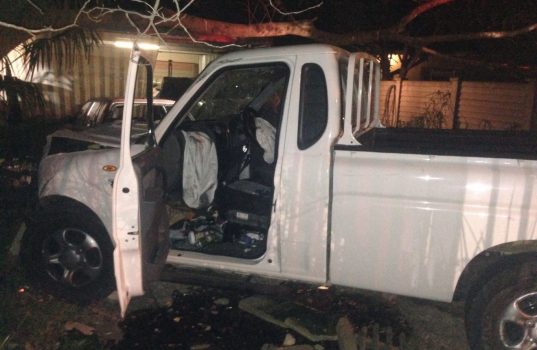Lawyer: Gathering evidence of liability is key in drunk driving crashes
If you’ve been injured in a collision that occurred because another driver was drunk, you may be able to claim compensation for pain and suffering, medical costs, loss of income, and other expenses incurred as a result of the accident.
This is according to Kirstie Haslam, partner at DSC Attorneys, who says that in South Africa, you can’t make a personal injury claim directly against the driver responsible for a road accident but you can claim compensation from the Road Accident Fund (RAF).
Haslam points out that for a personal injury claim to be successful in a drunk driving case, it has to be shown that the other driver’s negligence was the cause of the accident that resulted in your injury. Reckless driving, for instance, is a form of negligence.
“It’s likely to support your claim if a police report indicates that the alcohol level of the driver responsible for the accident was in excess of 0,05 grams per 100 millilitres of blood at the time of the collision,” she explains.
Supporting your claim
If you’ve been injured in a road accident and you believe the party responsible was drunk, it’s important to gather as much evidence as possible straight away, at the scene and you should also collect further documents afterwards to substantiate your claim. Haslam highlights these important guidelines:
At the scene
At the scene of the accident, aim to:
- make a record of the details of all of the parties and vehicles involved in the accident
- obtain contact details of any eyewitnesses and, if possible, request that they write and sign accounts of what they saw
- note any statements made by the driver(s) at fault.
You should also take the time to write a personal account detailing the events of the accident, and describing damage to the cars involved and to any objects nearby.
If you’re unable to do this at the scene of the accident, compile your personal account as soon after the accident as possible to ensure that you record details clearly and accurately.
If you have a camera or cellphone on you, take photographs and videos of the scene before anything has been moved. Focus on capturing details that will substantiate your claim, including damage to the vehicles and any surrounding objects, as well as your personal injuries.
You can also make use of your cellphone to record audio clips, to capture witness statements and admissions by other drivers.
After the accident
After the accident, important evidence to collect includes police and medical reports.
Police report
Ensure you get a copy of the police report, which should include a description of the accident, a diagram of the scene, and the reporting officer’s assessment of the accident. The report should also include details of who the officer determined was responsible for the collision. This can help prove liability in a drunk driving claim.
Medical reports
It’s important that you seek medical attention as soon after the accident as possible. This is to protect your health, and because you’ll need medical records and a doctor’s report to support your personal injury claim. Also, always complete prescribed treatment and comply with doctors’ recommendations so that any long-term injury can’t be blamed on your failure to do this.
Building a strong case
Once you’ve gathered what evidence you can, it’s best to contact an experienced personal injury attorney to assist.
Drunk Driving Takes Lives and Destroys Families!! Don’t Drive Drunk! https://t.co/LwYk5l690u #ArriveAlive #DontDrinkAndDrive pic.twitter.com/QlF9X0oEZP
— Arrive Alive (@_ArriveAlive) January 24, 2019
Related Posts
« Man nabbed in Calvinia with drugs estimated at R100 000-00 Vehicles burned and entrances to mines blocked on the N11 »
























